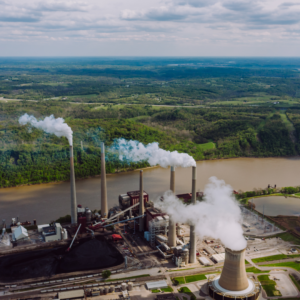
The report forms part of its defence against the Morrison Government’s proposal for gas reservation on the east coast. The report shows that when governments step into free markets, capital investment dries up for exploration and production. In Thailand, Malaysia, Argentina, Mexico, India and China, under-investment in new supply, led to gas shortages and a need to import gas to provide domestic supply.
The report argues rather than improving gas supply or reducing prices, interventions can impede the very investment needed to bring on new supplies. Far more sustainable solutions are needed to support investment that increases supply.
The Federal Government’s Resources Minister Keith Pitt released a discussion power in October on the design of a gas reservation system which would apply to future developments. This week is the deadline for feedback.
APPEA members include Australia’s largest oil and gas producers including Woodside, Santos, Origin, BHP, Shell, BP and Jemena.
The APPEA report warns against a framework that would discourage investment to develop new fields, particularly in a low-price environment and with an uncertain economic recovery.
The report also found when they analysed both gas exporters and importers, that none of the five developed Organisation for Economic Co-operation and Development (OECD) countries it studied made “material” use of government intervention in gas, while the intervention measures in the 15 developing countries were sometimes counterproductive.
It also argued that regulation does not necessarily produce low gas prices as an International Gas Union (IGU) survey found in countries that have intervention on prices such as Brazil, China, India, Malaysia and Thailand have average wholesale prices that are higher than Australia.
Recent reports from the United Nations and locally by the Climate Council are increasingly putting pressure on the gas industry. The Climate Council report outlined that greenhouse emissions from the gas industry are expected to be higher than government data suggests and continues its call to switch to 100% renewable electricity.
However, this is not deterring the local gas industry with the industry filling another “missing link” in the national gas network after announcing a gas sales agreement between Blue Energy and Energy Australia (EA). To allow the gas sourced from Blue Energy’s Coal Seam Gas tenements in the Bowen Basin to be delivered to EA will require a pipeline to be built linking the Bowen Basin and Queensland gas hub at Wallumbilla. The Wallumbilla hub then connects into the southern states.
As part of the governments recovery plan for Central Queensland was the investigation into a 500km gas pipeline to connect gas reserves in the Bowen Basin to the east coast domestic market and overseas customers. This agreement is the next step in meeting the Morrison Government’s gas recovery plan.
The Morrison plan was for “reliable, cheaper gas supply that will boost local manufacturing and bring down domestic power bills.”
Manufacturers have been expressing growing frustration over recent months that gas producers have not dropped their long-term contract prices in line with the sharp price falls on the spot market caused by the virus-driven crash in energy demand. Gas on long-term contracts are still being offered at prices of $8-10/GJ where the Wallumbilla hub price is $5-6/GJ.
Industry representatives for gas intensive manufacturers said boosting east-coast gas supply would not solve all the issues in the market but would create greater competition and was a key part of the solution.
Queensland’s Minister for Resources Scott Stewart, recognised the importance, contribution and economic benefits of the oil and gas industry. The APPEA has welcomed the Ministers ongoing support. APPEA Queensland Director Georgy Mayo also said “the oil and gas industry is fully committed to working with the Queensland Government to support the state’s economic recovery and ensure the sector continues to support highly skilled jobs and economic growth, including across regional areas … oil and gas is a mainstay of Queensland’s economy with companies continuing to invest billions of dollars each year in on-going exploration and development … this industry has invested more than $70 billion into Queensland’s economy and the sector makes a significant contribution to the state including through petroleum royalties – which are forecast to increase to more than $2 billion over the forward estimates – to help build schools, roads and hospitals”.
